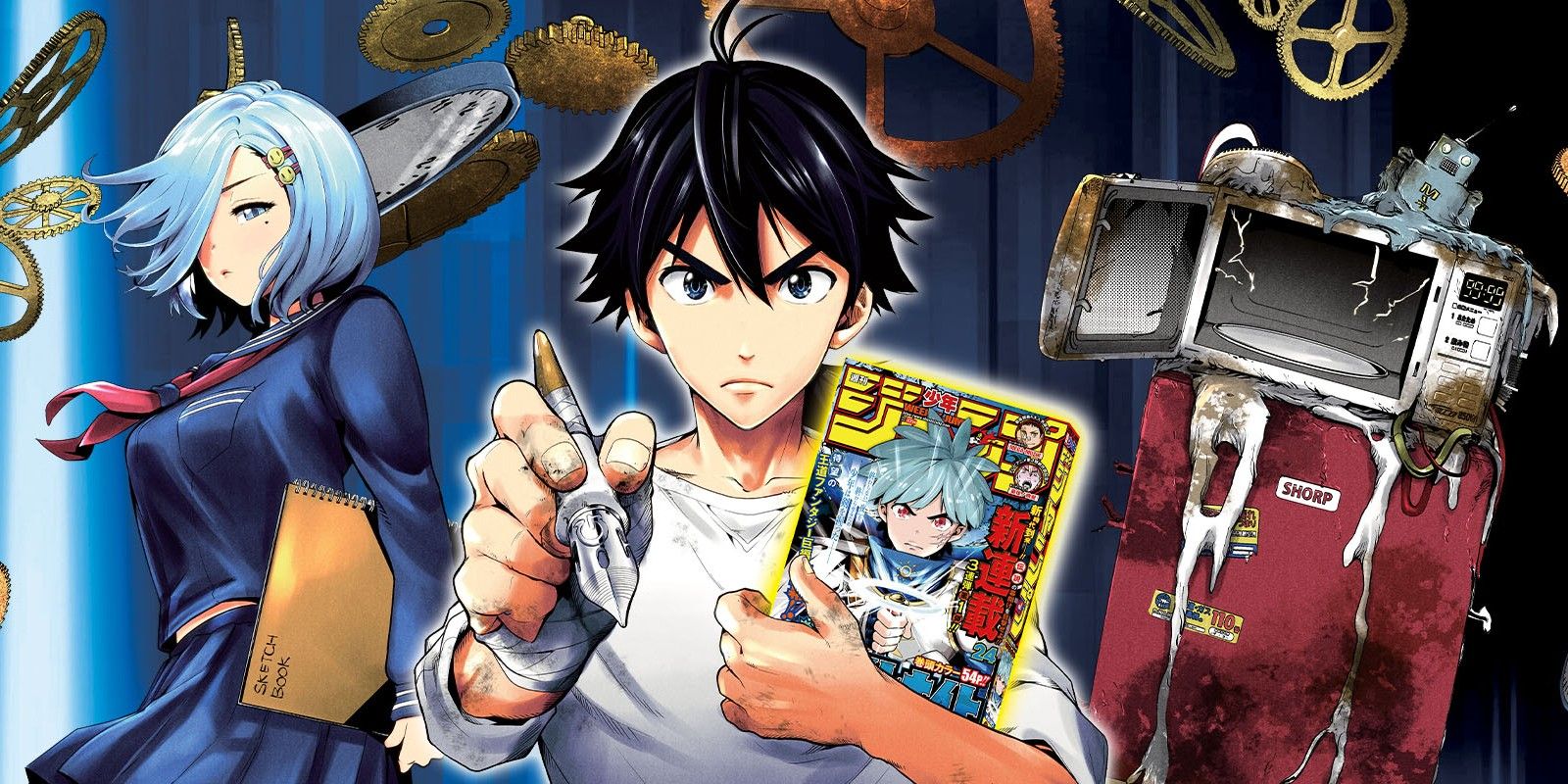Time Paradox Ghostwriter has reportedly been axed by Weekly Shonen Jump. It's been a controversial series since it began serialization, with a vocal fanbase making their dislike of the series' exploration of plagiarism known. The author, Kenji Ichima, was forced to disable replies on social media due to negative comments about the series. What adds to the discourse is that the main character, a male creator, steals the work of a young girl who spends over a decade trying to perfect a story that she can be proud of and is excited to show other people. Plagiarism of someone's own original creative work goes against the moral compass of many and it was unnerving to see how the series attempted to build excuses to make it seem okay.
Time Paradox Ghostwriter had a great start following Teppei Sasaki, a struggling artist trying to become a professional manga artist with Shonen Jump, but constantly has his ideas rejected. The beginning of this series shows the inner workings of how Shonen Jump, and other manga publishers, operate behind the scenes. The audience sees the many challenges that comes with getting a published one-shot, much less a full running series, putting them on full display and giving readers a renewed appreciation for their favorite manga, the mangaka behind them and the entire team who work hard to get a new chapter out every week. Teppei's struggles as a creator are also very realistic, trying to find his unique voice as an artist as he resiliently tries to live out his dream while trying to make ends meet.
The series takes a turn when he finally finds success by plagiarizing "White Knight," the work of a young girl named Itsuki Aino, when a microwave time machine sends Teppei her groundbreaking manga from 10 years in the future. Teppei recognizes that what he's doing is wrong, but reasons that it's somehow okay to steal Itsuki's hard work and creativity, even trying to trace her artwork at one point to replicate her success. No, he does not accept profit from the manga due to feeling terrible about his actions, but that still doesn't change the fact that he does it for personal gain' recognition, praise and prestige are all still forms of payment. Itsuki surrenders the 'White Knight' story to Teppei and becomes determined to create another manga that can surpass it. To top it all off, Itsuki is going to die from exhaustion due to overworking herself as a manga artist and Teppei has to somehow prevent this by plagiarizing some more.
Although this type of story did not sit well with readers, there is still some merit to it. Shonen Jump's usual fare are action-packed stories with powerful, immutable heroes. a few exceptions like The Promised Neverland, but Time Paradox Ghostwriter is a shonen-supernatural series that fans of the manga magazine don't typically get to see serialized. Despite its short run and controversial topic of choice, Time Paradox Ghostwriter had great visuals and a premise that broke the cookie cutter Shonen Jump formula. The series could be a gateway for future stories with unique concepts that push the envelope more than what's been serialized in the past. As long as the mangaka nail the execution, these stories will be the next evolution of Jump — and Time Paradox Ghostwriter will have paved the way.


